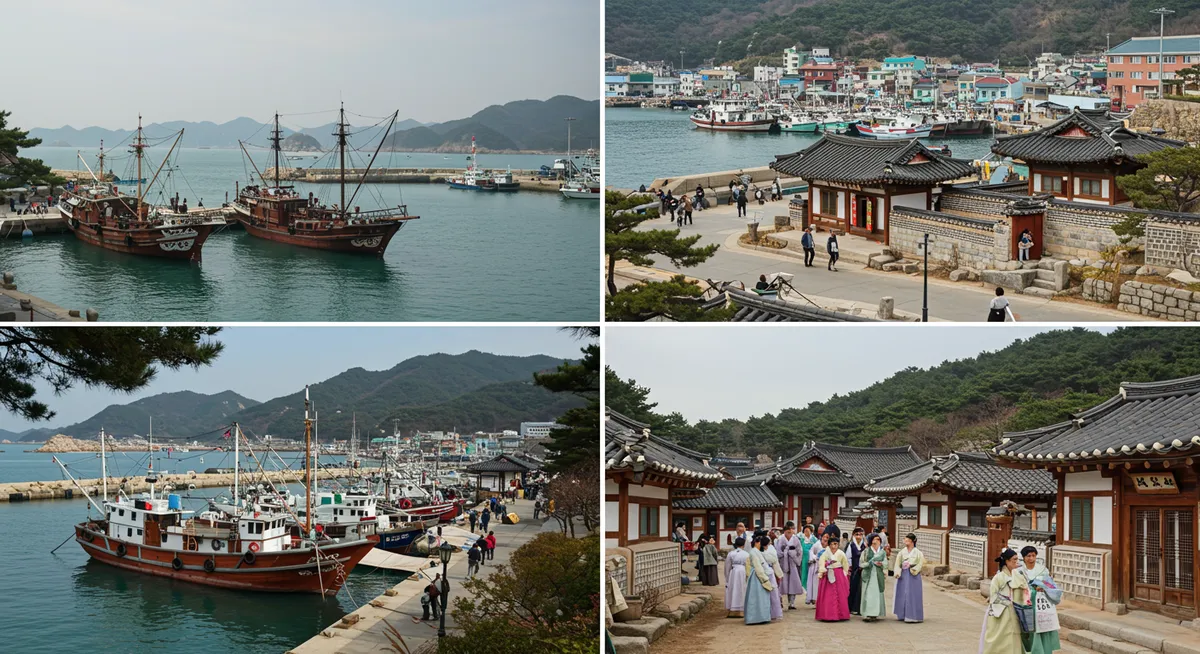
Mokpo's Rich History & Vibrant Culture
Table of Contents
Want to find the best travel deals for this destination? Chat with our travel hacking specialist!
Get Travel HacksCategory: mokpo-history-and-culture
Unveiling Mokpo's Enduring Legacy
As someone who has spent significant time exploring South Korea's lesser-known gems, I can attest that Mokpo offers a truly unique blend of past and present. For comprehensive travel advice on the region, be sure to visit Plan Vacation Asia. This guide delves into the fascinating Mokpo history and culture, revealing how this port city has evolved through centuries of trade, colonial influence, and artistic expression. Understand the roots of its resilience and charm, from its strategic maritime importance to its burgeoning cultural scene, ensuring a richer appreciation of your visit.
Mokpo's Maritime Past: A Gateway to Korea
Mokpo's strategic location made it a crucial port from ancient times, linking Korea to international trade routes. The city's identity is inextricably tied to the sea, serving as a gateway for goods, people, and ideas. Its natural harbor facilitated rapid development, especially after its opening to foreign trade in 1897. My experience visiting the Mokpo National Maritime Museum truly brought this history to life, showcasing traditional boats and fishing practices. This maritime heritage shaped not only the economy but also the very fabric of Mokpo history and culture, influencing its unique dialect and community spirit. Therefore, understanding its deep connection to the ocean is essential.
Echoes of the Japanese Colonial Period
A significant chapter in Mokpo history and culture is the Japanese colonial era (1910-1945), which left an indelible mark on the city's architecture and urban planning. Walking through the original downtown area, visitors can still observe numerous well-preserved Japanese-style houses and administrative buildings. This period profoundly influenced the city's development, as Mokpo became a key transportation hub for rice export. Visiting the Mokpo Modern History Museum offers a poignant insight into this complex time, illustrating the lives of both Japanese settlers and Korean residents. These architectural remnants serve as a tangible reminder of a challenging yet formative period in Mokpo's cultural evolution.
Art, Literature, and Folk Culture
Mokpo has long been a cradle of artistic and literary talent, fostering a unique regional cultural identity. From acclaimed poets like Kim Hyun-wook to vibrant folk traditions, the city resonates with creative energy. The tranquil atmosphere and scenic beauty of Yudalsan Mountain have inspired countless artists. Moreover, local festivals celebrating traditional crafts and music showcase the lively spirit of Mokpo's folk culture. My personal highlight was experiencing the delicious local cuisine, which often incorporates traditional ingredients and methods, reflecting this rich cultural tapestry. This deep appreciation for the arts and heritage is a cornerstone of Mokpo history and culture, distinguishing it as a significant cultural center in South Korea.
Preserving Mokpo's Heritage Today
Efforts to preserve Mokpo's rich history and culture are evident throughout the city. Historical districts are being meticulously restored, allowing visitors to step back in time. Institutions like the Mokpo Natural History Museum contribute significantly to documenting the region's past. Furthermore, annual events and public programs actively promote an understanding of the city's unique heritage. For instance, knowing the best time to visit Mokpo often aligns with these cultural festivals, offering immersive experiences. These initiatives not only protect the physical remnants of the past but also ensure that the stories and traditions of Mokpo history and culture continue to thrive for future generations and eager visitors.
Frequently Asked Questions
What is Mokpo famous for historically?
What are the main cultural attractions in Mokpo?
How did Mokpo's port influence its development?
Exploring Mokpo's rich history and culture offers a captivating journey through South Korea's past and present. From its essential role as a bustling port to the architectural echoes of its colonial period and its flourishing artistic scene, Mokpo tells a story of resilience and identity. The city masterfully preserves its heritage while embracing modernity, making it a truly rewarding destination for history buffs and culture enthusiasts. We encourage you to delve deeper into this captivating city and uncover its many layers for yourself on your next trip to Korea.